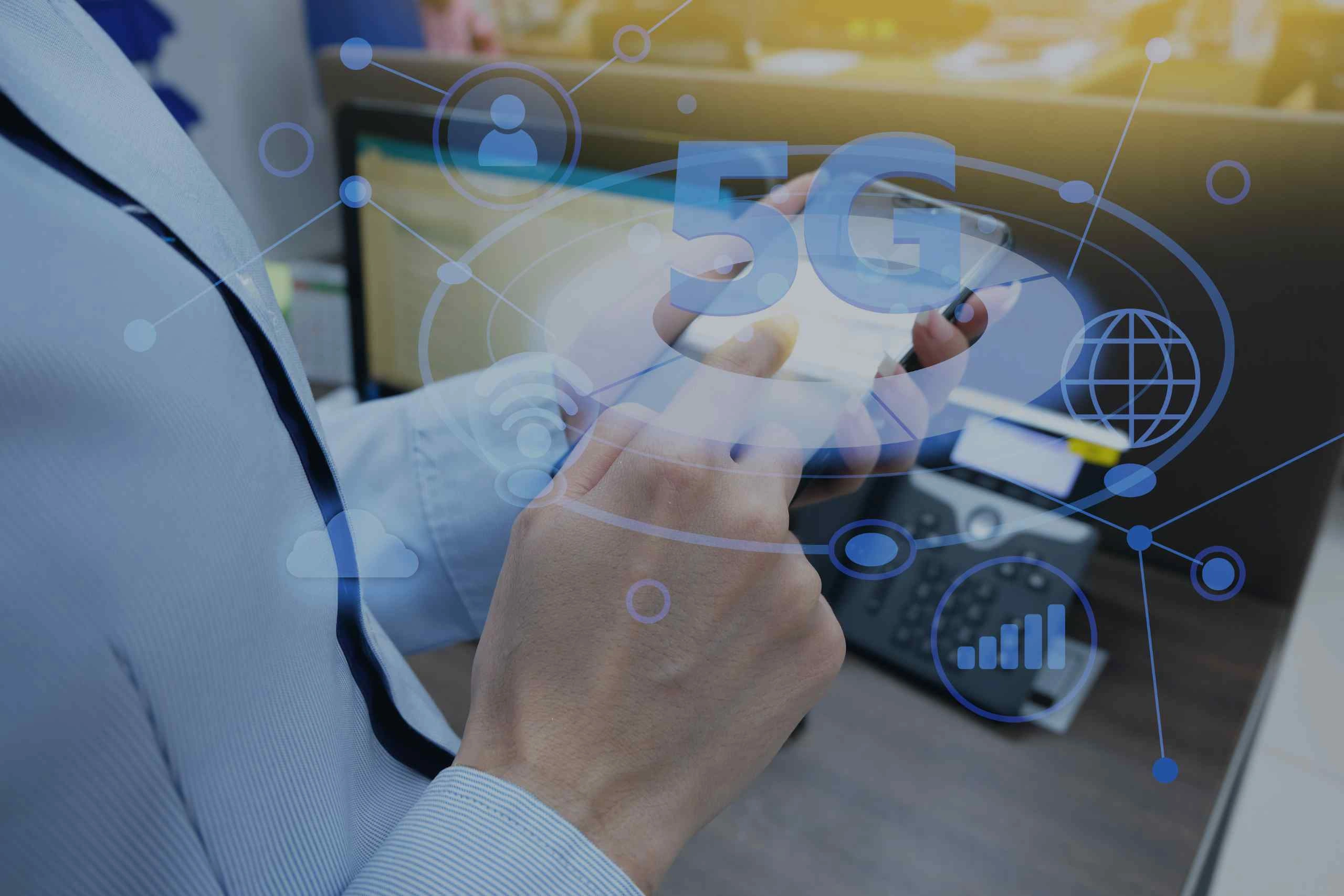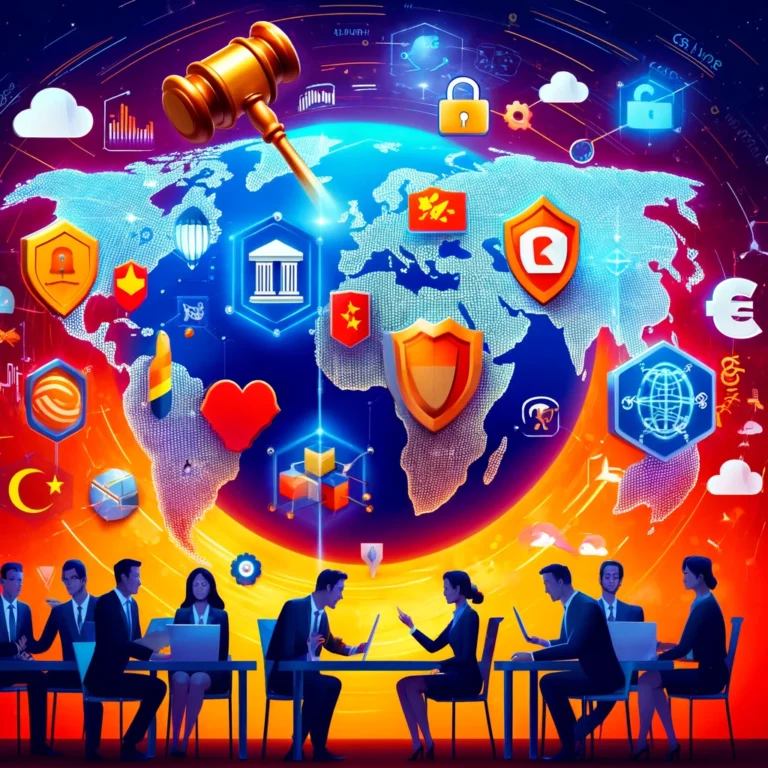The Impact of 5G on Business Operations and Opportunities
The rollout of 5G technology is poised to revolutionize business operations across the globe. With its unprecedented speed, ultra-low latency, and capacity to connect billions of devices, 5G is not just an upgrade from 4G—it’s a game-changer that will enable new business models, transform industries, and create countless opportunities for innovation. As companies prepare for the widespread adoption of 5G, understanding its potential impact is crucial for staying competitive in an increasingly connected world. In this blog post, we’ll explore how 5G is set to impact business operations and unlock new opportunities for growth.
1. Revolutionizing Communication and Collaboration
One of the most immediate impacts of 5G technology will be its ability to enhance communication and collaboration within businesses. With faster data transfer speeds and minimal latency, 5G will enable real-time communication and seamless collaboration, even across vast distances.
- Video Conferencing and Virtual Meetings: The rise of remote work has made video conferencing an essential tool for businesses. However, the quality of these virtual meetings often depends on internet speed and stability. 5G will significantly improve video conferencing by providing high-definition video and audio with virtually no lag. This will make remote meetings more effective, enabling teams to collaborate as if they were in the same room, regardless of their physical location.
- Cloud-Based Collaboration: Many businesses have already transitioned to cloud-based tools for project management, document sharing, and team collaboration. 5G will further enhance these tools by ensuring faster upload and download speeds, enabling real-time editing and collaboration on large files, and reducing the time it takes to access cloud-based applications. This will be particularly beneficial for industries like media, entertainment, and design, where large file sizes are common.
- Augmented Reality (AR) and Virtual Reality (VR): 5G’s low latency will enable more immersive AR and VR experiences, opening up new possibilities for virtual collaboration and training. For example, companies can use VR to conduct virtual training sessions or product demonstrations, allowing participants to engage with 3D models and simulations in real-time. In industries like architecture and engineering, AR can be used to overlay digital information onto physical spaces, improving design accuracy and collaboration.
2. Enabling the Internet of Things (IoT) at Scale
The Internet of Things (IoT) refers to the network of connected devices that communicate and exchange data with each other. While IoT has been around for years, the deployment of 5G will be a key enabler of IoT at scale, allowing for the seamless connection of billions of devices and unlocking new business opportunities.
- Smart Manufacturing: 5G will enable the widespread adoption of smart manufacturing, where factories are equipped with IoT sensors and devices that monitor and optimize production processes in real-time. This will lead to increased efficiency, reduced downtime, and lower costs. For example, 5G-enabled sensors can monitor the condition of machinery, predict maintenance needs, and automatically adjust production schedules to prevent delays.
- Supply Chain Optimization: The combination of 5G and IoT will revolutionize supply chain management by providing real-time visibility into every stage of the supply chain. Companies will be able to track the location and condition of goods in transit, monitor inventory levels, and respond to changes in demand more quickly. This level of visibility will help businesses reduce waste, improve logistics, and ensure timely delivery of products.
- Smart Cities and Infrastructure: 5G will also play a critical role in the development of smart cities, where IoT devices are used to manage infrastructure, improve public safety, and enhance the quality of life for residents. Businesses in sectors like transportation, energy, and real estate will benefit from new opportunities to develop smart solutions, such as autonomous vehicles, intelligent traffic management systems, and energy-efficient buildings.
3. Driving Innovation in Products and Services
The capabilities of 5G will enable businesses to develop innovative products and services that were previously unimaginable. From autonomous vehicles to immersive entertainment experiences, 5G will be the foundation for the next generation of technological advancements.
- Autonomous Vehicles: One of the most anticipated applications of 5G is in the development of autonomous vehicles. The low latency of 5G is critical for enabling real-time communication between vehicles and their surroundings, allowing for safer and more efficient autonomous driving. This will not only revolutionize the automotive industry but also create new business models in transportation, such as autonomous ride-sharing and delivery services.
- Immersive Entertainment: 5G will transform the entertainment industry by enabling ultra-high-definition streaming, cloud gaming, and immersive experiences like AR and VR. For example, 5G will allow consumers to stream 4K or even 8K content without buffering, play cloud-based games with minimal latency, and experience live events in VR as if they were there in person. This will open up new revenue streams for content creators, streaming platforms, and technology companies.
- Healthcare Innovation: The healthcare industry will also benefit from 5G, with applications ranging from telemedicine to remote surgery. The high speed and low latency of 5G will enable doctors to perform remote consultations and surgeries with greater precision and reliability. Additionally, 5G will support the use of wearable devices that monitor patients’ health in real-time, allowing for early detection and intervention in medical conditions. This will lead to improved patient outcomes and reduced healthcare costs.
4. Transforming Business Models and Customer Experiences
5G will not only enable new products and services but also transform existing business models and customer experiences. Companies that embrace 5G will be able to offer more personalized, responsive, and engaging experiences to their customers.
- Retail Innovation: In the retail industry, 5G will enable new shopping experiences, such as AR-powered virtual try-ons, personalized in-store navigation, and real-time inventory updates. For example, customers could use their smartphones to see how furniture would look in their homes using AR, or receive personalized promotions based on their location within a store. Retailers can also use 5G to optimize their operations, such as by tracking customer traffic patterns and adjusting staffing levels in real-time.
- Financial Services: 5G will also impact the financial services industry by enabling faster and more secure transactions, as well as new services like real-time fraud detection and personalized financial advice. For example, banks could use 5G to offer instant loan approvals or personalized investment recommendations based on real-time market data. Additionally, 5G will support the growth of fintech companies that rely on fast and secure connectivity to deliver innovative financial services.
- Enhanced Customer Support: With 5G, businesses can offer more responsive and personalized customer support through AI-powered chatbots, real-time video support, and remote troubleshooting. For example, a tech company could use 5G to provide instant video support to customers who need help setting up a new device, or a utility company could use IoT devices to remotely diagnose and fix issues without the need for a service visit.
5. Addressing Challenges and Preparing for the 5G Future
While the potential of 5G is immense, businesses must also be aware of the challenges associated with its adoption. Ensuring a smooth transition to 5G will require careful planning, investment in infrastructure, and consideration of security and privacy concerns.
- Infrastructure Investment: To fully leverage the benefits of 5G, businesses will need to invest in upgrading their existing infrastructure, including network equipment, IoT devices, and cloud computing resources. This may require significant upfront costs, but the long-term benefits of increased efficiency, innovation, and competitiveness will outweigh the initial investment.
- Security and Privacy: With the increased connectivity enabled by 5G, businesses must be vigilant about security and privacy. The proliferation of IoT devices and the vast amounts of data generated by 5G networks present new vulnerabilities that cybercriminals could exploit. Companies must implement robust cybersecurity measures, such as encryption, authentication, and network segmentation, to protect their data and systems.
- Regulatory Compliance: As 5G technology evolves, businesses must stay informed about regulatory requirements related to its use. This includes ensuring compliance with data protection laws, telecommunications regulations, and industry-specific standards. Working closely with regulators and industry bodies will help businesses navigate the evolving regulatory landscape and avoid potential legal issues.
The arrival of 5G technology marks a new era of connectivity and innovation, with the potential to transform business operations, enable new products and services, and create unprecedented opportunities for growth. Companies that embrace 5G and prepare for its impact will be well-positioned to thrive in the future, while those that lag behind may struggle to keep up. By investing in the necessary infrastructure, addressing security and privacy concerns, and exploring new business models, businesses can harness the power of 5G to drive success in the years to come.







